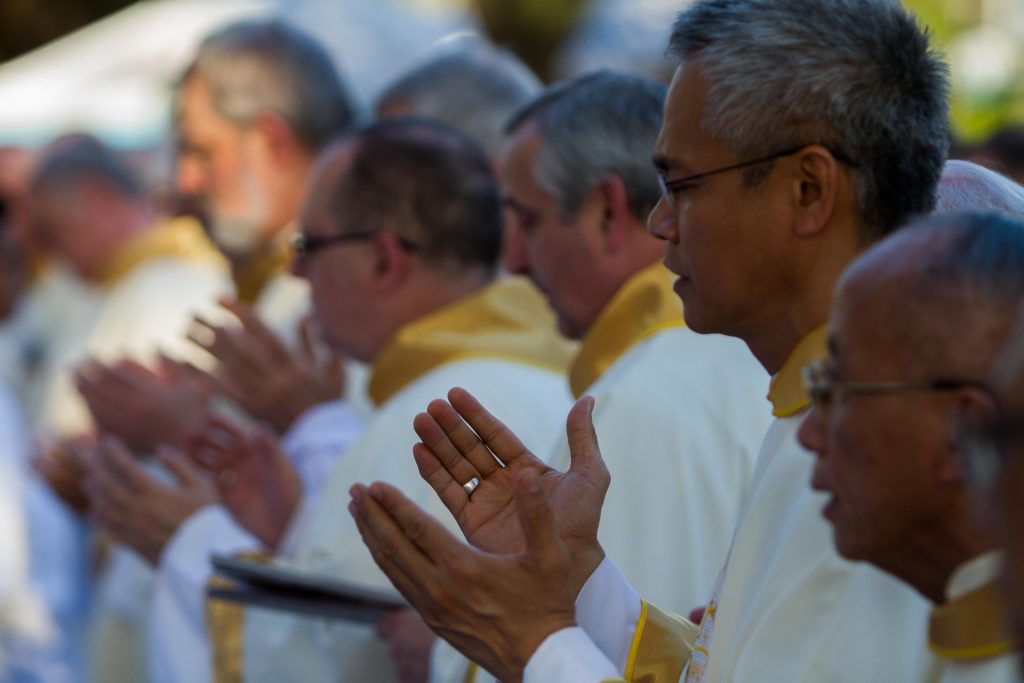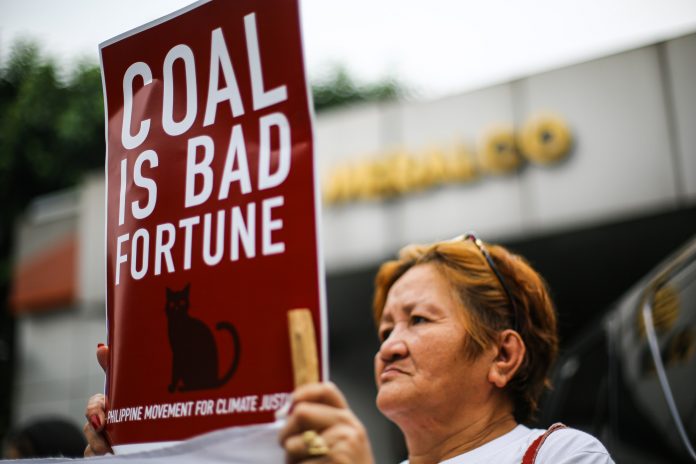Some Philippine Catholic Church institutions are receiving “dirty donations” despite strong statements issued by church leaders against mining and the use of coal as energy source.
Several members of the clergy revealed that some religious leaders and church institutions “solicit” and “receive” donations from mining and coal operators.
Father Bienvenido Miguel of the Diocese of Antipolo called on church administrators and heads of offices to stop asking “favors” from corporations involved in destructive activities and dirty energy.
The priest made the statement during an online forum, one of the activities for the observance of this year’s “Season of Creation.”
Father Miguel, who heads the social action ministry of the diocese, said some of the biggest benefactors of church projects are engaged in “destructive businesses.”
“We are shocked to discover that the major donors in our diocese are quarry firms,” said the priest, adding that some of offices in the diocese “approached” the firms to ask for donations.
He said the practice of asking favors or accepting gifts from companies “creates a perception that they can buy and silence the Church” on issues of environmental protection.
The Diocese of Antipolo covers a huge portion of the province of Rizal, east of the Philippine capital Manila, where several quarries and mines are operating.
About 60 percent of cement and aggregate requirements in the capital comes from Rizal province.
Father Miguel said these quarry and mining firms “are responsible for the degradation of biodiversity and landscape alteration in the province.”
He said he is “saddened and disappointed” that “in our own backyard, there are some [members of the clergy] who side with these quarry firms.”
Soliciting donations from big corporations has become a common practice in many dioceses and parishes in the country.

A LiCAS.news source in a diocese south of Manila said a church leader who has “close connections” with a huge mining company was offered a US$2-million worth of projects.
In December, a bishop reportedly accepted a new vehicle as a “gift” from a coal project proponent.
The prelate also reportedly accepted vouchers for a “five-star hotel” and distributed it to his priests.
Environmental activist Marilou Verano told LiCAS.news in an interview that a bishop in one of the dioceses in southern Luzon also accepted a US$206,000 donation from a mining company.
In 2016, a priest in Zambales province admitted that he accepted financial donations from a mining company for the building of a bell tower.
The priest, however, said he had a “conversion” after a strong typhoon hit the province and mud from the mining sites flooded low-lying villages in town.
Father Warren Francis Puno, head of the ecology ministry of the Diocese of Lucena, said church institutions should “take precautions” in accepting donations.
“We know that it is hard to do because the Church relies on donations, but we, as an institution, can create a protocol that can guide us in soliciting or accepting donations,” he said.
The priest told LiCAS.news that dioceses must engage in dialogue with companies involved in destructive extraction “but must not enter into a compromise.”
“The Church’s teachings are not negotiable,” he said. “We cannot say yes to these projects that destroy Our Common Home because we are receiving something from these companies,” added the priest.
Father Puno called on the Catholic Bishops’ Conference of the Philippines to create an independent body that can look into the alleged “connections” of some church leaders to mining and coal companies.









